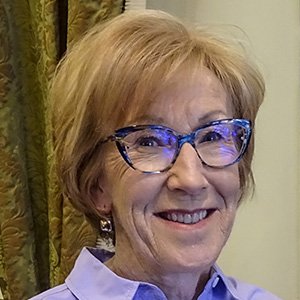
04 Jul 2024
Anticipatory Grief of Caregivers
Anticipatory grief can be a long and lonely road for caregivers and often goes undetected.
Sadness and other feelings of grief occur with the impending loss, or the progressive loss, of a loved one, especially if you are close to someone with dementia.
Before the loss happens, it can extend to the associated loss of a companion, the loss of shared memories and the loss of dreams for the future.
Anticipatory grief can also relate to the impending loss of a cherished pet, the loss of a job, or the move away from safe and familiar surroundings. Sometimes it is the cumulative impact of multiple changes.
Anticipatory (or preparatory) grief can have benefits as it prepares us for what lies ahead.
As a caregiver for my partner, Steve, who had a stroke three years ago, anticipatory grief, and uncertainty about the future, comes and goes. Instead of pushing it away, I have learned to accept when it surfaces, to understand how it affects me, and to know that it will pass.
Mixed emotions swirl around - from fear to courage, from crossness to calmness, from guilt to gratitude. Switching back and forth between distressing and settled periods can be a rollercoaster ride for caregivers.
Most of the time Steve and I appreciate what we still have in our lives, rather than what we have lost, and focus on what we can still do together.
Caregivers can become lethargic and unmotivated and withdraw from social situations as they gravitate between holding on and letting go. Support can be hard to find during this uncertain period.
Keeping feelings to ourselves can lead to loneliness and isolation. We underestimate how important it is to reach out to family and friends, and to be reassured that we are not alone. This is an area I need to work on, and get more support from friends who will not judge me, who are good listeners, who make me laugh, who will not try to fix things or tell me how I should feel.
Being kind to ourselves puts us in a better frame of mind to be kind to those around us. My self care toolbox includes: meditation, journaling, a gratitude practice, regular exercise and nature walks.
For the next stage of our journey, we are right sizing and moving to a place where we will be in closer proximity to our neighbours. Hopefully this will be a good opportunity to make new friends and to join groups facing similar challenges.
On this exciting new adventure we will inject some anticipatory joy - an opportunity to do things differently, to try new experiences and make the most of our changing circumstances.
As we recalibrate and continue to do what we enjoy, including coastal walks and cycle rides, we can look back on a multitude of shared experiences with friends (including some in our books about New Zealand adventures).
What is most important now is the quality of the time we spend together, sometimes in companionable silence.
Grief experienced by caregivers, sudden or anticipatory, does not fit into neat categories or stages and is not time limited.
So, alongside caring for loved ones, caregivers need self-compassion, and to be willing to reach out to others for support, and time to heal in our own ways.
